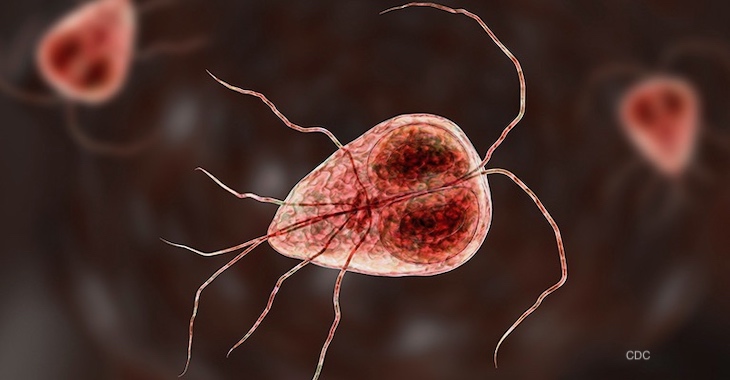How do you know if you have a Giardia infection? This tiny parasite Giardia duodenalis causes gastrointestinal illnesses and usually sickens people who swallow contaminated recreational water or drinking water. The parasite lives in the intestine of animals and people and is passed in feces.

Giardia is found in every country around the world and in every region of the United States. The parasite is very contagious and spreads easily, including from person to person and through contact with contaminated surfaces.
Giardia Infection Symptoms
People usually start having symptoms of this infection one to two weeks after swallowing the parasite. Symptoms include diarrhea, gas, foul-smelling, greasy poop that can float, stomach pain and cramps, loss of appetite, nausea, and dehydration. Patients usually have two to five loose stools per day, along with increasing fatigue. Some people with this infection will have no symptoms.
Guardia infections can cause weight loss over time, and will also stop the body from absorbing nutrients, such as vitamins A and B12.
Symptoms usually last from two to six weeks. People with weakened immune systems may be sick for a longer period of time. Antiparasitic medications can reduce the time that symptoms last.
Giardia Outbreaks
Most Giardia outbreaks are linked to water parks and swimming pools. When someone who is sick with this infection goes into a pool without showering, or poops in the pool, the parasite can spread. Ingestion of just 10 cysts can make you sick.
During the period of 2012 to 2017, public health officials in 26 states reported 111 giardiasis outbreaks that sickened at least 760 people. These outbreaks were waterborne and also caused by person-to-person exposure. Private residences and childcare facilities are the most common settings for these outbreaks.
People who are most vulnerable to complications from this infection include infants and pregnant women, who can suffer from dehydration.
To stop the spread of this parasite, it’s important to wash your hands thorough with soap and eater after using the bathroom and changing diapers, and before preparing food and eating. Shower when you go into public pools or water parks. Also treat water from springs, lakes, or rivers when you are backpacking and camping. And avoid swallowing water from swimming pools, water parks, splash pads, hot tubs, and untreated water while swimming.




